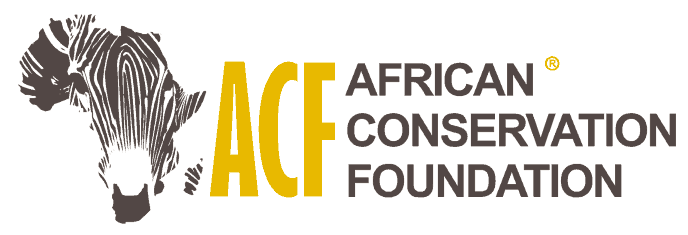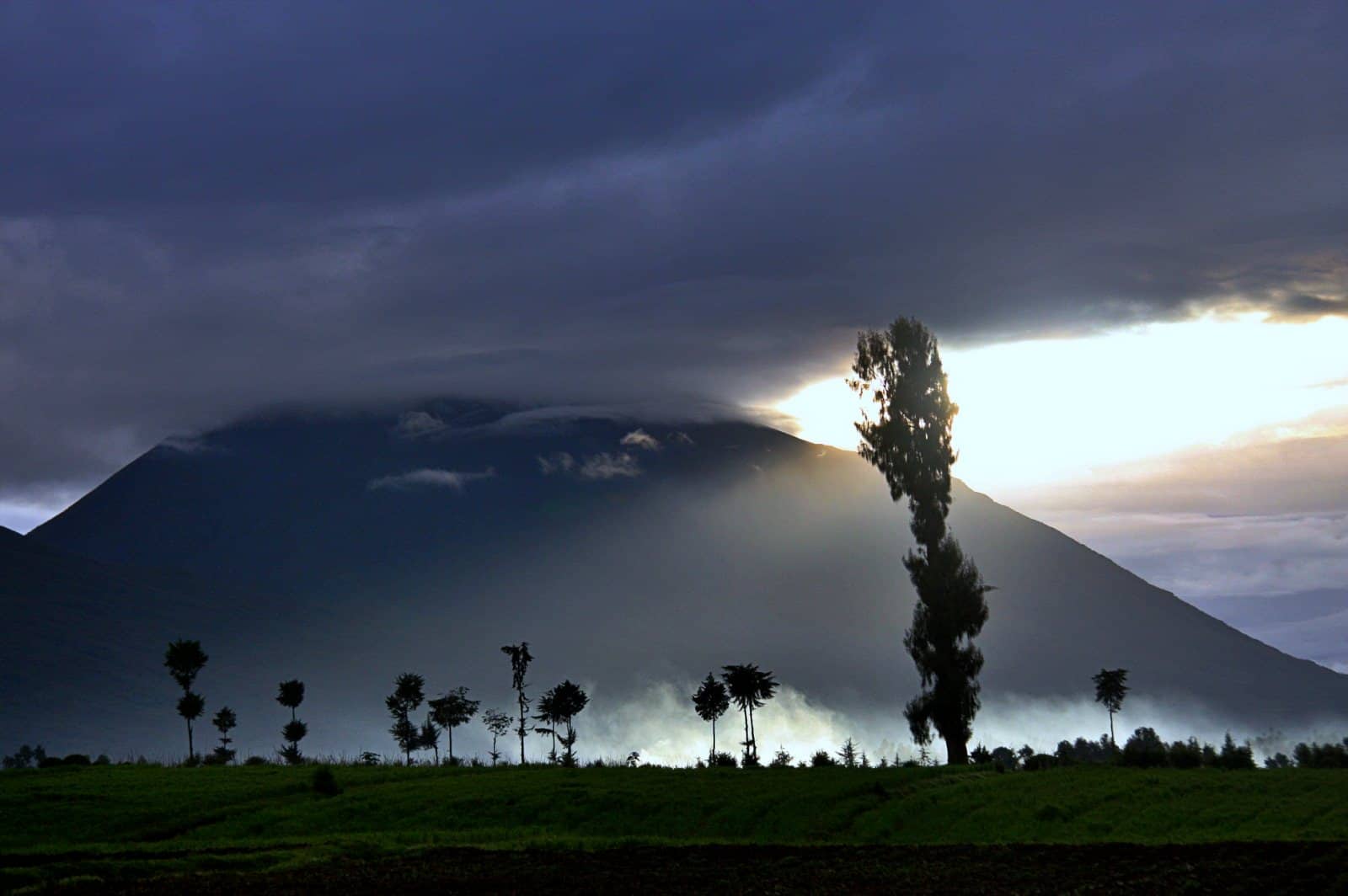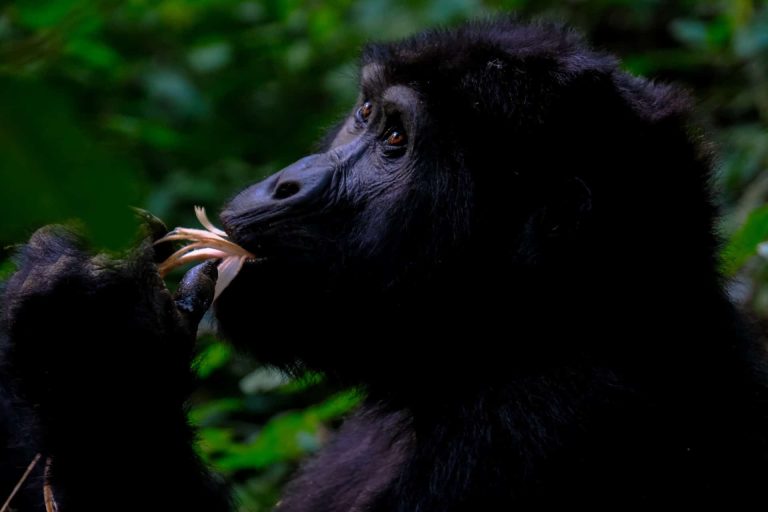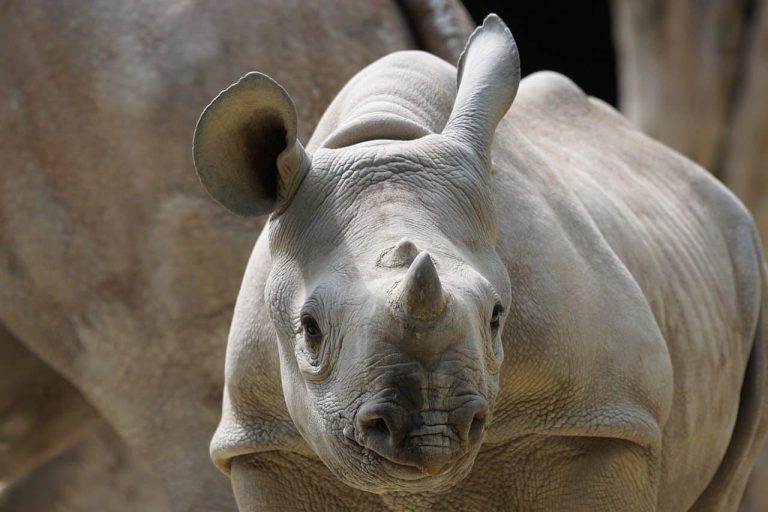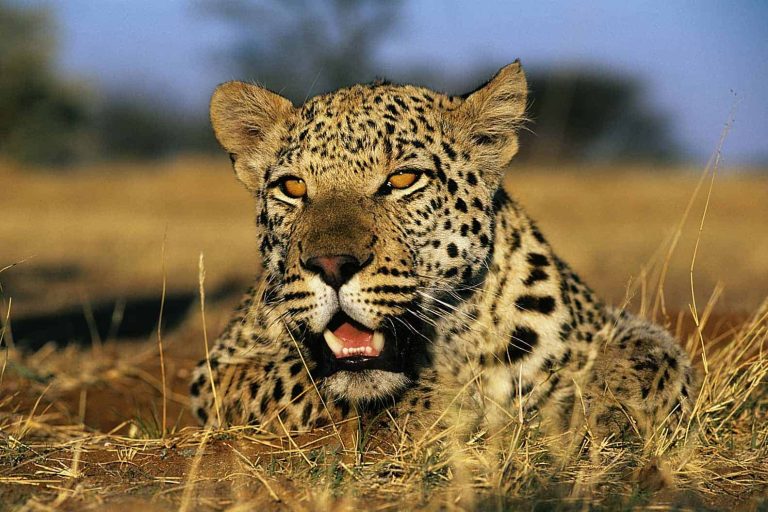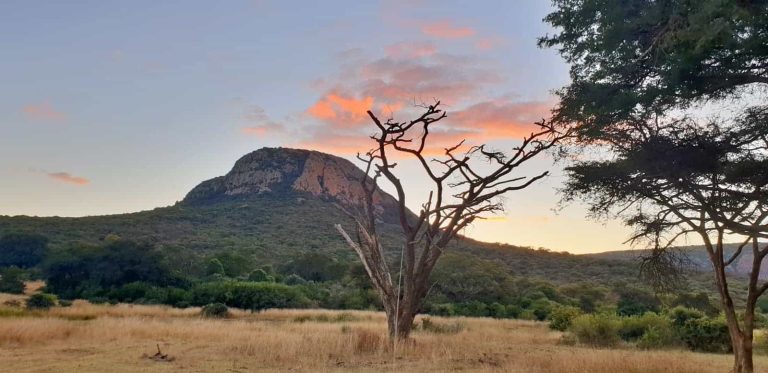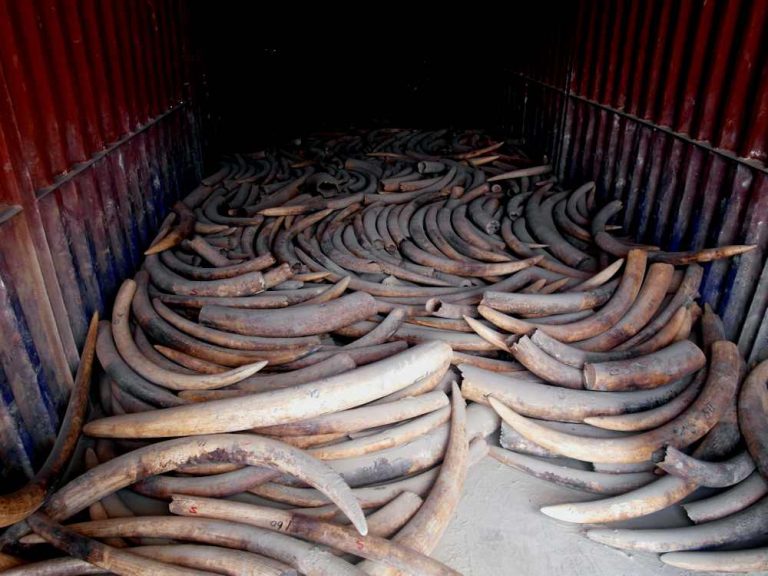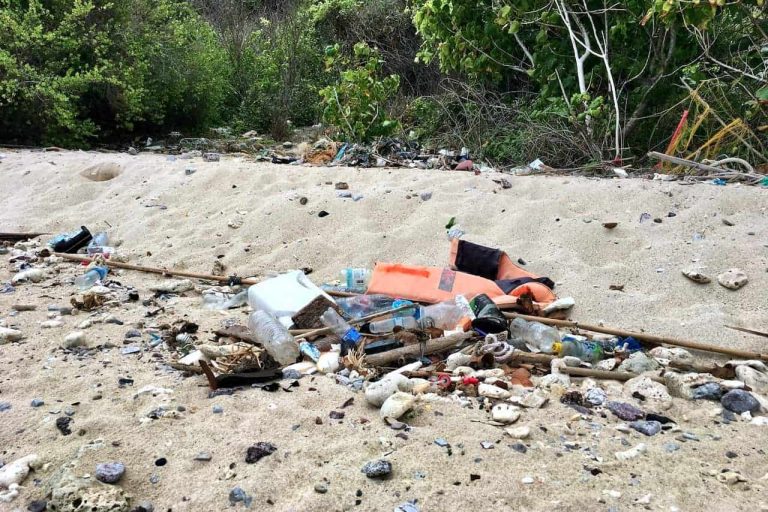Local and international organisations call on Ugandan and DRC presidents to protect sensitive ecosystems in new oil licensing round
Kampala and Goma – Nearly 50 civil society organizations (CSOs) from Uganda, the Democratic Republic of Congo (DRC) and their partners have written to the presidents of Uganda and the DRC calling on them to avoid sensitive ecosystems in the planned and ongoing oil exploration licensing round in the Albertine Graben.
The CSOs made the call following the launch of Uganda’s second competitive oil exploration licensing round on May 8, 2019.
At the launch in Mombasa, Kenya, Uganda’s Minister for Energy and Mineral Development, Hon. Irene Muloni, opened up five blocks for bidding.
Among the blocks is Ngaji oil block, which is located in the ecosensitive Lake Edward and Queen Elizabeth National Park (QENP) in Uganda. The above are shared and border DRC’s Virunga National Park (ViNP) in the Albertine Graben.
On the other hand, Hon. John Kwet-Mwen Kwet, the Minister of Hydrocarbons in the Democratic Republic of Congo (DRC) also rolled out the call for bids for 21 oil blocks some of which are located within the Albertine Graben.
Block V, which is located in Virunga National Park in the Albertine Graben, is one of the blocks that could be put up for licensing.
TOURISM OVER OIL
Through a letter dated May 20, 2019, the CSOs remind the presidents of the ecological, economic and social importance of the sensitive ecosystems in the Albertine Graben and call on them to protect them from oil exploitation.
“The Albertine Graben harbors some of the most sensitive ecosystems of national and international importance.
For instance, it is home to Virunga National Park in the Eastern DRC which is classified as a UNESCO World Heritage site.
The park accommodates 43% of Africa’s bird species, 27% of Africa’s mammals and more than 10% of its reptiles, amphibians, and plants in addition to several rare and endangered species that exist nowhere else in the world.
The Albertine Graben is also home to Queen Elizabeth National Park and part of Lake Edward in Uganda.
Queen Elizabeth National Park in Uganda is classified a Humanity and Biosphere Reserve by UNESCO while Lake Edward is classified as a Ramsar site,” part of the CSOs’ letter to presidents Yoweri Kaguta Museveni and Felix Tshisekedi of Uganda and DRC respectively reads.
The CSOs remind the presidents that not only does the diverse ecosystem in the Albertine Graben generate huge revenues from tourism, agriculture, fisheries and others, more money could be made if investments in economic activities such as tourism were promoted.
“For instance, 2017 estimates from World Wildlife Fund (WWF) International indicate that if Virunga National Park is managed sustainably, it has the potential to generate over US$235 million per year for the DRC government. This is way beyond what the oil industry would generate.”
RESPECT INTERNATIONAL COMMITMENTS ON CONSERVATION, CLIMATE CHANGE
The CSOs further remind the presidents of the national and international obligations they have to protect ecosenstive areas of world importance.
“Both the Ugandan and DRC governments are signatories to the Ramsar and UNESCO Conventions on conservation.
These conventions make it mandatory for all signatory countries to commit to avoid any activities that might directly or indirectly degrade the cultural and natural heritage of Ramsar and World Heritage sites.
If oil exploration is undertaken in Lake Edward, Virunga national park, Queen Elizabeth national park and other sensitive ecosystems, it would be an abuse of our countries’ commitments,” the CSOs say.
They also remind the presidents of Uganda and the DRC that oil exploitation is against the 2015 Paris Climate Change Agreement.
“Both Uganda and DRC are signatory to the Paris Agreement on Climate Change which came into force during the 21st Conference of Parties (COP) meeting in Paris, France in 2015.
The agreement calls on all signatory countries to cut their Greenhouse Gas Emission [GHG] and limit the global temperature rises to less than 2 degrees Celsius or to pre-industrial levels of less than 1.5 degrees Celsius.
The commitments made by our countries under the Paris Climate Change Agreement mandate your excellencies to ensure that any activities that result in the generation and release of greenhouse gas emissions into the atmosphere are limited. Fossil fuels are the biggest contributor to greenhouse gas emissions.
Moreover, oil exploitation itself contributes to the carbon footprint that our countries must limit per commitments under the Paris Climate Change Agreement,” the CSOs write.
DANGERS OF OIL EXPLOITATION
The CSOs, which warn of the dangers of oil exploitation in Africa including environmental degradation, state appropriation of natural resources at the expense of communities, human rights abuses, conflict and others call on the presidents to:
- Immediately stop any plans to carry out oil exploration and exploitation activities in sensitive ecosystems of the Albertine Graben including Ngaji oil block, Block V in Virunga National Park, Salonga National Park, Ramsar sites such as the Lufira river basin and other UNESCO in addition to Ramsar sites.
- Respect the national and international commitments including commitments made under the Paris Climate Change Agreement to address climate change.
- Scale up national commitments to reduce greenhouse gas emissions in line with global goals and commitments.
- Promote tourism as an engine of sustainable economic development and promotion of community livelihoods.
- Prioritize investments in renewable energy to promote sustainable development of our economies.
- Adopt integrated management and cross-sectorial approaches that take into account the trade-offs of food and energy production, infrastructure, freshwater, and biodiversity conservation.
The Ugandan and DRC CSOs in addition to their international partners that have written to the Uganda and DRC presidents are shown below.
| No. | Name of organisation | Country |
| 1. | Africa Institute for Energy Governance (AFIEGO) | Uganda |
| 2. | National Association of Professional Environmentalists (NAPE) | Uganda |
| 3. | Guild Presidents’ Forum on Governance (GPFOG) | Uganda |
| 4. | World Voices Uganda (WVU) | Uganda |
| 5. | South Western Institute for Policy and Advocacy (SOWIPA) | Uganda |
| 6. | Kasese Consortium on Climate Change Adaptation and Biodiversity Conservation (CABIC) | Uganda |
| 7. | Green Organisation Africa (GOA) | Uganda |
| 8. | Innovation pour le Développement et la Protection de l’Environnement, (IDPE) | DR Congo |
| 9. | Association des Mamans pour la Lutte contre le Traumatisme (A.M.A.L.U.T) | DR Congo |
| 10. | Fédération des Comités des Pêcheurs Individuels du Lac Edouard, (FECOPEILE) | DR Congo |
| 11. | Alerte Congolaise pour l’Environnement et le Droit de l’Homme, (ACEDH) | DR Congo |
| 12. | Green Journalist Network, GJN | DR Congo |
| 13. | Societe civile forces vives de la Republic Democratique du Congo | DR Congo |
| 14. | Synergie des Vanniers Ami de la Nature, (SVAN) | DR Congo |
| 15. | Synergie des Ecologistes pour la Paix et le Développement, (SEPD) | DR Congo |
| 16. | Forum Global de Chercheurs d’Alternatives, (FGCCA) | DR Congo |
| 17. | Programme d’Intégration et Développement du Peuple Autochtones Pygmées, (PIDP) | DR Congo |
| 18. | Forum des Engagés pour le Développement Durable, (FORED) | DR Congo |
| 19. | Bureau d’Études et d’appui au Développement du territoire de Walikale, (BEDEWA) | DR Congo |
| 20. | Grande Action pour le Développement, (G.A.D) | DR Congo |
| 21. | Forêts Communautaires pour le Développement Rural, (FOCODER) | DR Congo |
| Signed in solidarity with the Ugandan and DRC CSOs: | ||
| 1. | 350.org | Africa |
| 2. | African Conservation Foundation – International | International |
| 3. | Arcus Foundation | United Kingdom |
| 4. | Bob Brown Foundation | Australia |
| 5. | eCountability | United Kingdom |
| 6. | EcoNexus | United Kingdom |
| 7. | ERA/Friends of the Earth | Nigeria |
| 8 | European Network of Networkers for Ecological Reflection and Action | Germany |
| 9. | Friends of the Earth | Togo |
| 10. | Friends of the Siberian Forests | Russia |
| 11. | Friends of the Earth International | International |
| 12. | GAIA | United Kingdom |
| 13. | Global Witness | United Kingdom |
| 14. | Groundwork | South Africa |
| 15. | IUCN National Committee of the Netherlands Foundation | Netherlands |
| 16. | Kate Brooks | Filmmaker |
| 17. | Marc Ona Essangui – Secretaire Exécutif Brainforest et Prix Goldman 2009 | Gabon |
